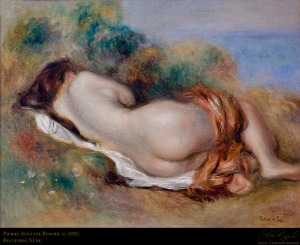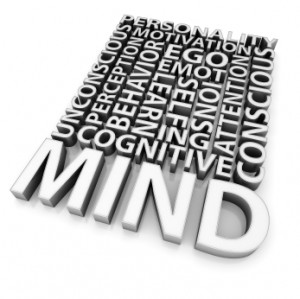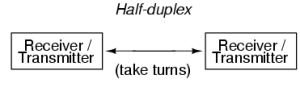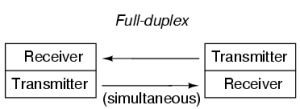Still, there's a lot of great things to be said for the old-school epicureans too. For instance, Lucretius already showed us some very important epicurean concepts, such how strict they were about physicalism. And I tried to show how clearly what Lucretius said about psychology, thinking and the emotions fit in just fine with Plato and Aristotle's thoughts on the matter.
Happily, a lot of what we've already said will count for Epicurus too, and so epicureanism in general. But not everything. There are some fundamental beliefs held by Epicurus that I think end up derailing his take on the emotions. So, at the end of the day, the theory I'm putting forth doesn't turn into the P-A-L-E theory, but remains the much better-sounding P-A-L theory.
Lets start with some good stuff before attacking the bad stuff.
Core Epicurean Beliefs about Psychology
The most fundamental thing about epicurean psychology is the idea that there are 3 types of desires, and they are what motivate us to act. The types are
1. Natural and necessary
2. Merely natural
3. Vain
Of course you knew it would be more complicated than that. Actually, category 1 has 3 sub-types that need to be understood, (category 2 and 3 don't have sub-types). The sub-types of "natural and necessary" desires are
1. Desires necessary for happiness
2. Desires necessary for rest or peacefulness of the body
3. Desires necessary for life
The reason these are so fundamentally important is that Epicurus was convinced that properly understanding what motivates your actions would allow you to make all your choices for the sake of
1. The health of the body
and
2. Keeping the psyche free from disturbance
In a nutshell, if you know what motivates you to act, you can learn to act only for the sake of mental and physical repose.
A fundamental belief in epicureanism is that we ALWAYS act to avoid pain and fear. Its just a matter of whether our choices are properly in line with that fact. Ideally, we choose consciously to act so as to avoid pain and fear, and at the same time for the sake of mental and physical repose. In the end avoiding pain & fear is the same trying to get repose. We can therefore say that when we're doing well we correctly chose to act in order to avoid pain & fear, or that we choose to act so as to have a healthy body and a mind free from disturbance, and mean the same thing.
Its important to note that we're not talking about reflexive responses to fear or pleasure stimuli, certainly not essentially such responses. For instance, in their way of looking at it, fear is an anxious anticipation of something you know is coming.
So while its not right to say that everything we do to achieve this goals is consciously chosen, we do have the ability to be conscious of all things that motivate all the choice-behavior and avoidance-behavior we end up doing. For instance, I may not choose to respond negatively and aggressively when a stranger puts an empty beer glass on my table as he walks by, but I chose to have a drink, I chose to go where I ended up, and as such I presumably chose to be around people who would do such things. When I then act to avoid the pain of being publicly diminished in that way, it shouldn't be too surprising.
Clearly, if I decide that the stranger deserves a beer dumped on them, I've made a bad choice. Yet my actions were an attempt to avoid pain.
Epicurus would counsel us to recall that there are three types of desires. One type, vain desires, are not "automatic" or "reflexes", ever. We only have them because we in some strong sense of the word chose them. If you really have to get a Duvel over an Amstel, its not because of some fundamental need of human beings.
Other desires, the merely natural ones, come to us in a sense automatically, like the desire to have something to drink (I don't mean a 'thirst' where you are parched). But we can choose to ignore them almost completely, at least for a time.
And as for the necessary desires, such as for sustenance, hydration or sleep, though they certainly must be satisfied, we still have a pretty good degree of leeway as to just how or to what extent we will satisfy them beyond the level absolutely required for physical and mental repose. I mean, yes you have to eat, but whether you skip a few meals or add a few extra is up to you.
So in the end, to a very large degree, pretty much everything you do, at least the way in which you do it, is up to you. Even if as a matter of fact you aren't "consciously' choosing to do the thing you are doing at any particular time.
Let's review. According to Epicurus, whether an action is consciously chosen or not, we ALWAYS act to avoid pain and fear.
This conclusion is based on three assumptions so we better see what we think of them.
1. Pleasure is the first good and natural to us. (The number one and original thing everyone seeks out is pleasure).
2. Every pleasure is good, but not every pleasure is something you should choose to get. (Just because sex is good doesn't mean you should sleep with everyone who will sleep with you).
3. Though every pain is an evil, some should not be avoided.
As it turns out, in Epicurus' mind, #2 and #3 are the same point. After all seeking pleasure is avoiding pain, and avoiding pain is seeking pleasure. So if there are some things you shouldn't do, its because they will somehow get rid or pleasure or cause pain even though you'd think they'd do the opposite. Pleasure, at the end of the day, is "freedom from pain in the body and from trouble in the mind". And we know from experience that some pleasures do lead to pain, and that some pains lead to pleasure. If you're not sure of the last one just think "flu shots" or "blood sample" or even "Listerine".
But the point here is that epicureans believe that if you agree with them that pleasure is the first good, to fulfill your natural desire for pleasure, you will have to avoid some pleasures to get pleasure. We need to avoid "pain-creating pleasures" and even purse "pleasure-creating pains".
I think that's already a good lesson but if it seems obvious to you, don't worry. I assure you its deeper than that. To see how smart this actually is, next time we will consider what it really means that we ALWAYS act to avoid pain and fear and to get pleasure.


















